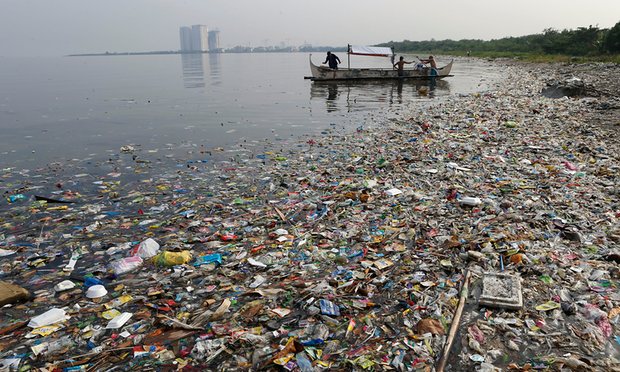New study provides one of the strongest cases yet that the planet has entered a new geological epoch

Fishermen float onboard a boat amid mostly plastic rubbish in Manila Bay, the Philippines. Humans have introduced 300m metric tonnes of plastic to the environment every year. Photograph: Erik de Castro/Reuters
CLICK HERE - The Anthropocene is functionally and stratigraphically distinct from the Holocene
theguardian.com - by Adam Vaughab - January 7, 2016
There is now compelling evidence to show that humanity’s impact on the Earth’s atmosphere, oceans and wildlife has pushed the world into a new geological epoch, according to a group of scientists.
The question of whether humans’ combined environmental impact has tipped the planet into an “Anthropocene” – ending the current Holocene which began around 12,000 years ago – will be put to the geological body that formally approves such time divisions later this year.
The new study provides one of the strongest cases yet that from the amount of concrete mankind uses in building to the amount of plastic rubbish dumped in the oceans, Earth has entered a new geological epoch.
Recent Comments